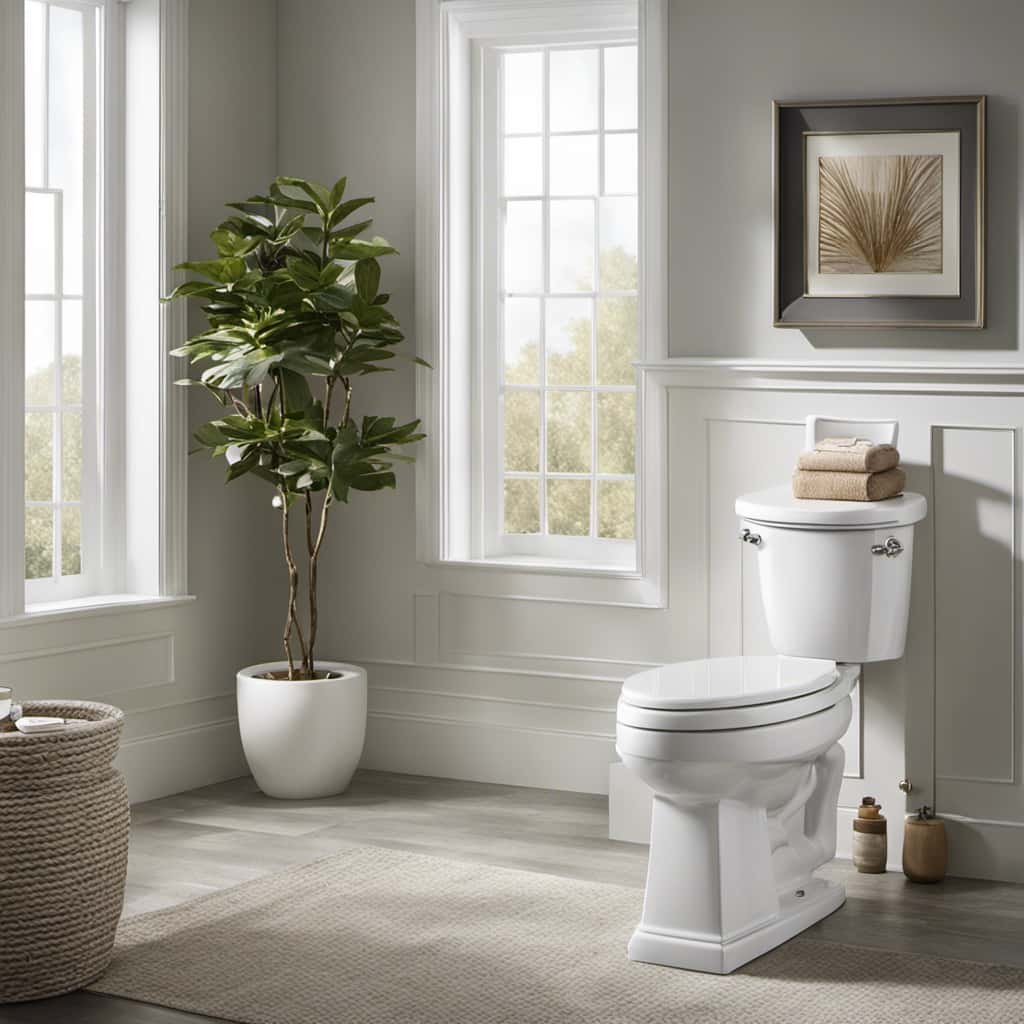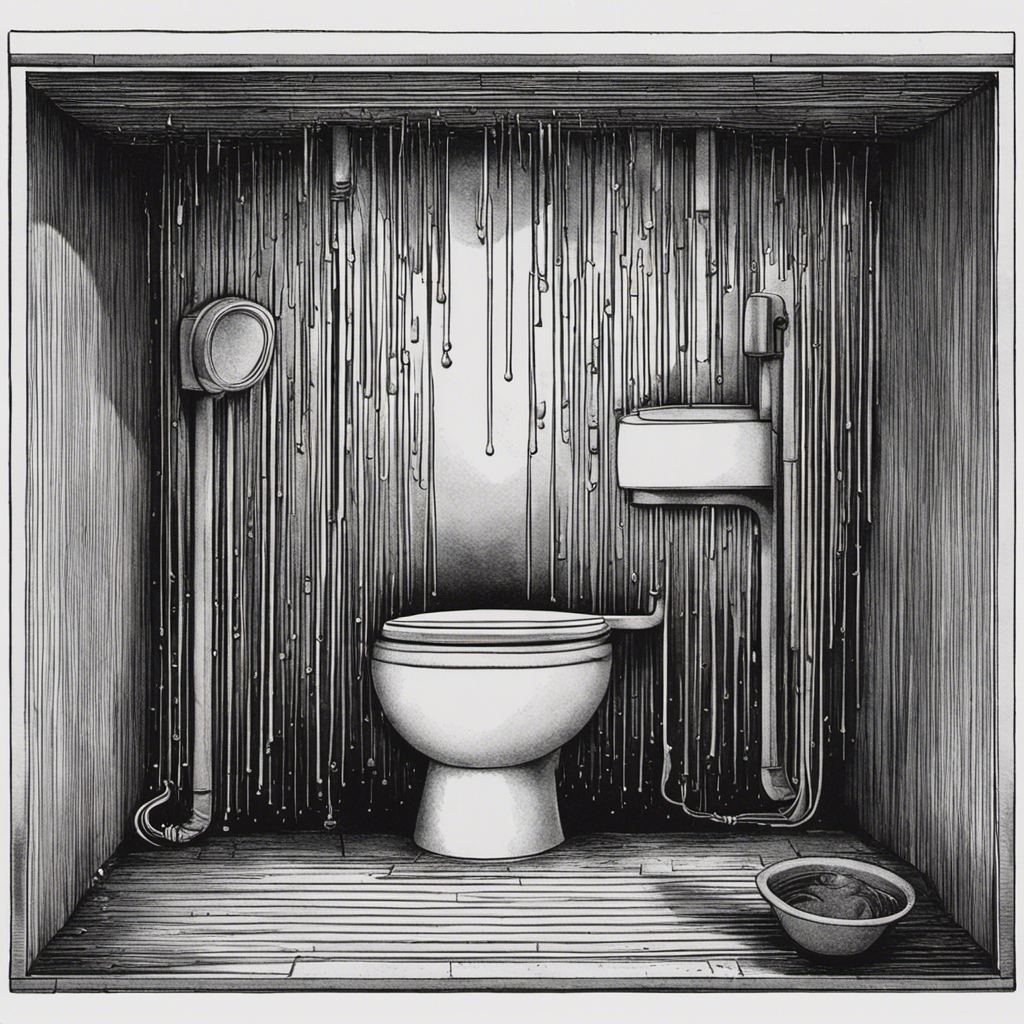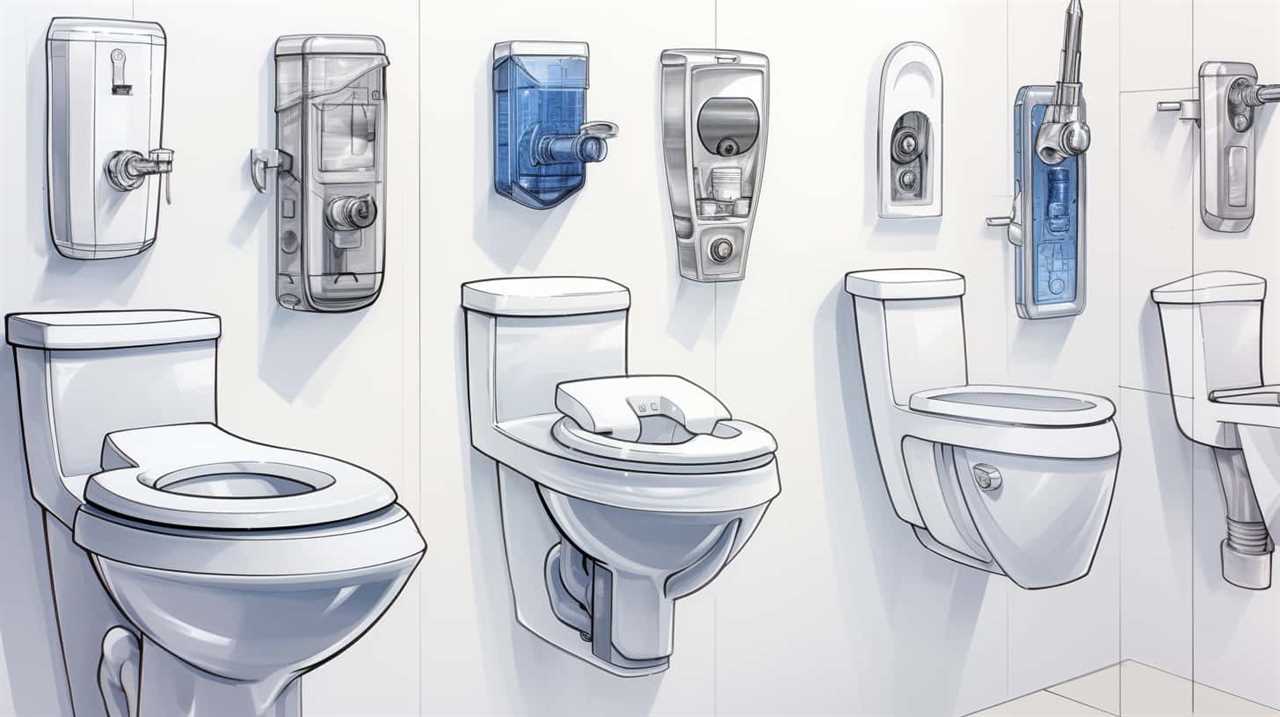Have you ever been startled by the sudden, premature closing of a toilet flapper? We’ve all experienced that frustrating moment when the water flow stops before we’re finished.
In this article, we’ll explore the various causes behind this irritating phenomenon. From flapper chain length to water pressure issues, malfunctioning valves to improper installation, and the buildup of sediment or debris, we’ll delve into the technical details to help you achieve mastery over your toilet’s flapper.
Key Takeaways
- Short flapper chain length can cause premature closure and should be adjusted for proper tension.
- Low water flow or faulty pressure regulator can lead to premature flapper closure and should be checked and repaired.
- Flapper valve wear or damage can result in premature closure and should be replaced.
- Buildup of sediment or debris in pipes can restrict water flow and increase pressure on the flapper, causing premature closure. Regular cleaning and the use of water softeners or filters can prevent this issue.
Flapper Chain Length
Our toilet flapper sometimes closes too soon because our flapper chain is too short. The flapper chain connects the flapper to the flush handle, allowing it to lift and release water from the tank into the bowl. When the chain is too short, it creates excessive tension, causing the flapper to close prematurely.
To resolve this issue, we need to adjust the flapper chain length. Start by turning off the water supply to the toilet and removing the tank lid. Locate the flapper chain and adjust its length by either lengthening or shortening it, ensuring proper tension. The ideal chain length allows the flapper to fully open and stay open until the flush is complete.
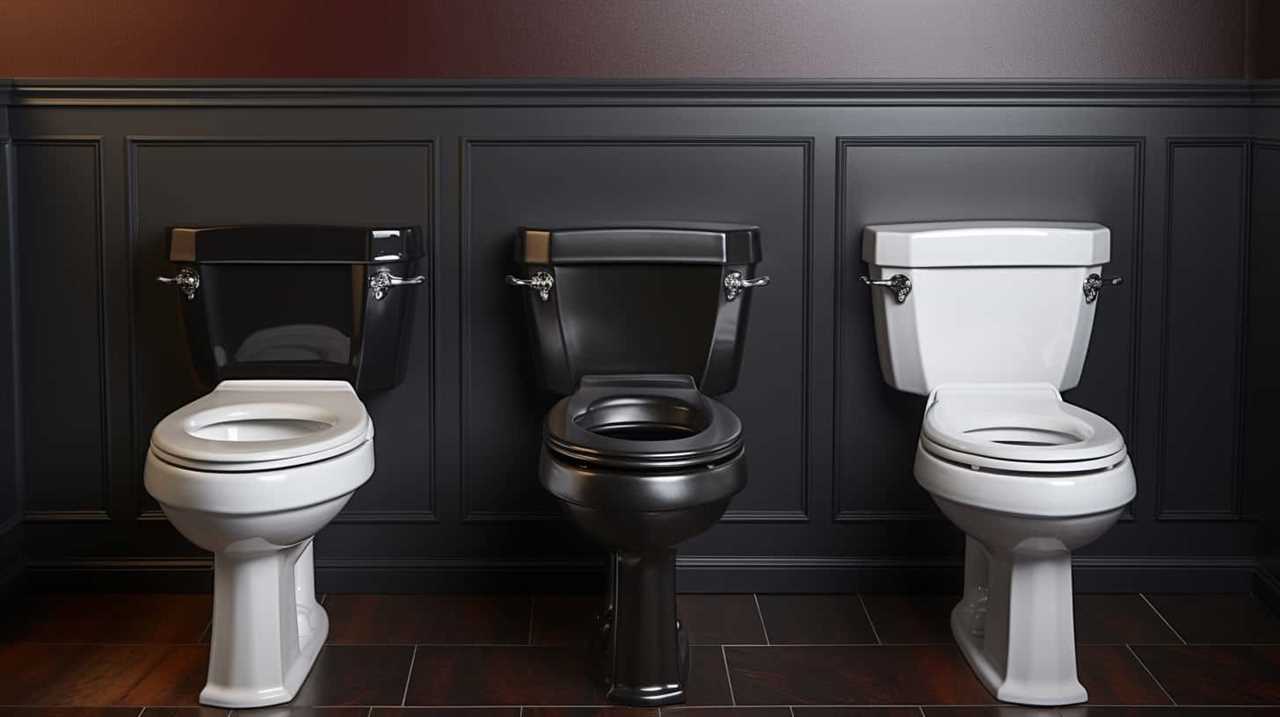
Test the toilet by flushing and observe if the flapper closes at the correct time. Adjust the chain length as needed until the desired result is achieved.
Water Pressure Issues
To address water pressure issues that may cause a toilet flapper to close too soon, we can start by checking the water supply and ensuring it’s at the correct pressure. Low water flow can lead to inadequate pressure, causing the flapper to close prematurely.
One possible culprit for low water flow is a faulty pressure regulator. The pressure regulator is responsible for maintaining consistent water pressure throughout the plumbing system. If the regulator isn’t functioning properly, it can result in reduced water flow and inadequate pressure.
To determine if the pressure regulator is the issue, you can consult a professional plumber who can inspect the regulator and make any necessary repairs or replacements.
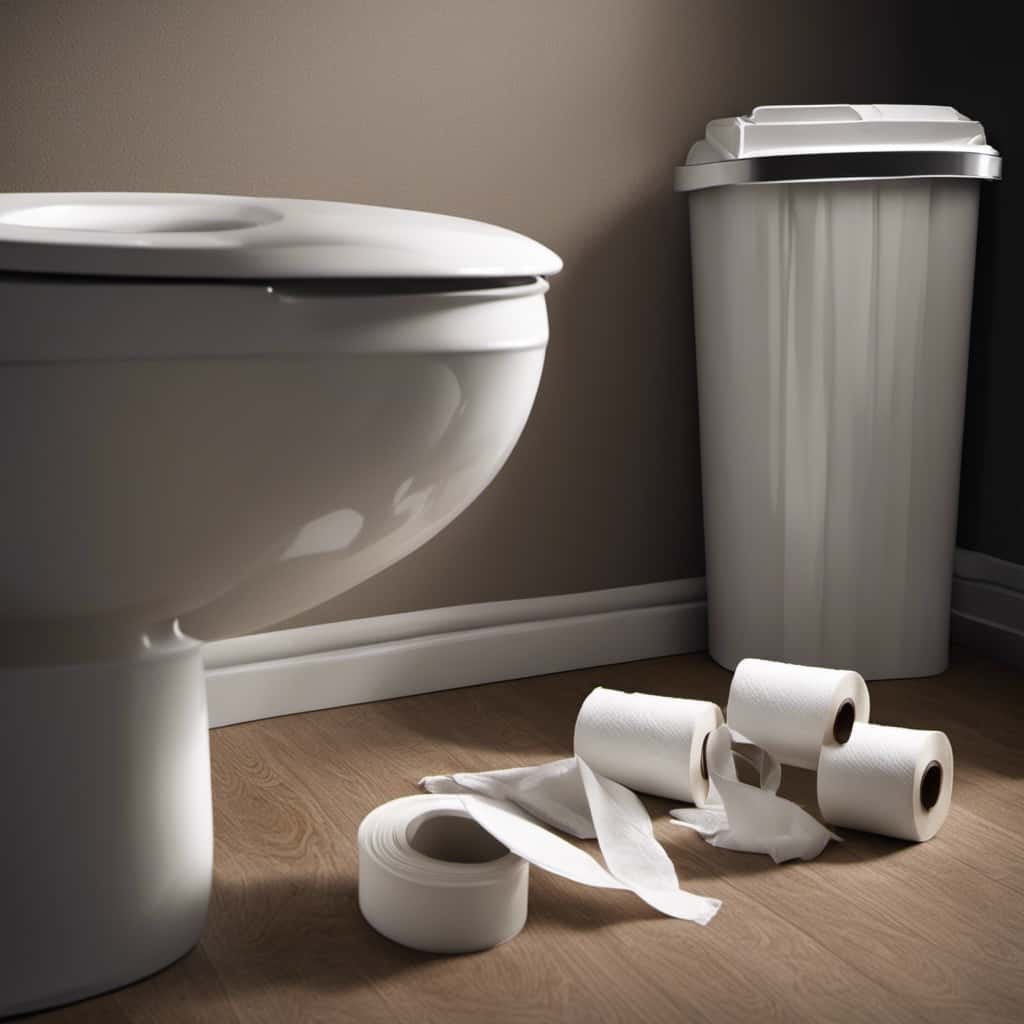
Malfunctioning Flapper Valve
When the toilet flapper closes too soon, it’s often due to a malfunctioning flapper valve. The flapper valve is responsible for controlling the flow of water from the tank into the bowl. Here are some common causes and solutions for a malfunctioning flapper valve:
- Flapper valve replacement: Over time, the flapper valve can wear out or become damaged, causing it to close prematurely. In this case, replacing the flapper valve with a new one can solve the problem.
- Flapper valve maintenance: Regular maintenance is key to preventing flapper valve issues. Cleaning the flapper valve and ensuring it’s free from debris can help maintain its proper functioning.
- Adjusting chain length: If the chain connecting the flapper valve to the flush handle is too short, it can cause the flapper to close too soon. Lengthening the chain can resolve this issue.
- Checking water level: If the water level in the tank is too high, it can put pressure on the flapper valve, causing it to close early. Adjusting the water level can alleviate this problem.
- Inspecting for leaks: A faulty flapper valve can contribute to water leakage, leading to continuous flushing. Regularly inspecting for leaks and repairing any issues can prevent premature flapper valve closure.
Improper Flapper Installation
Improper installation of the flapper can cause it to close prematurely. One common issue is an inadequate flapper seal. When the flapper isn’t installed correctly, it may not create a proper seal with the flush valve. This can lead to water leakage and a premature closure of the flapper.
Another possible cause of premature closure is a rusted hinge. If the flapper hinge is rusted or corroded, it may not allow the flapper to open and close smoothly. This can result in the flapper closing too soon after a flush.
To prevent these issues, it’s crucial to carefully follow the manufacturer’s instructions when installing the flapper and ensure that all components are in good condition before installation.
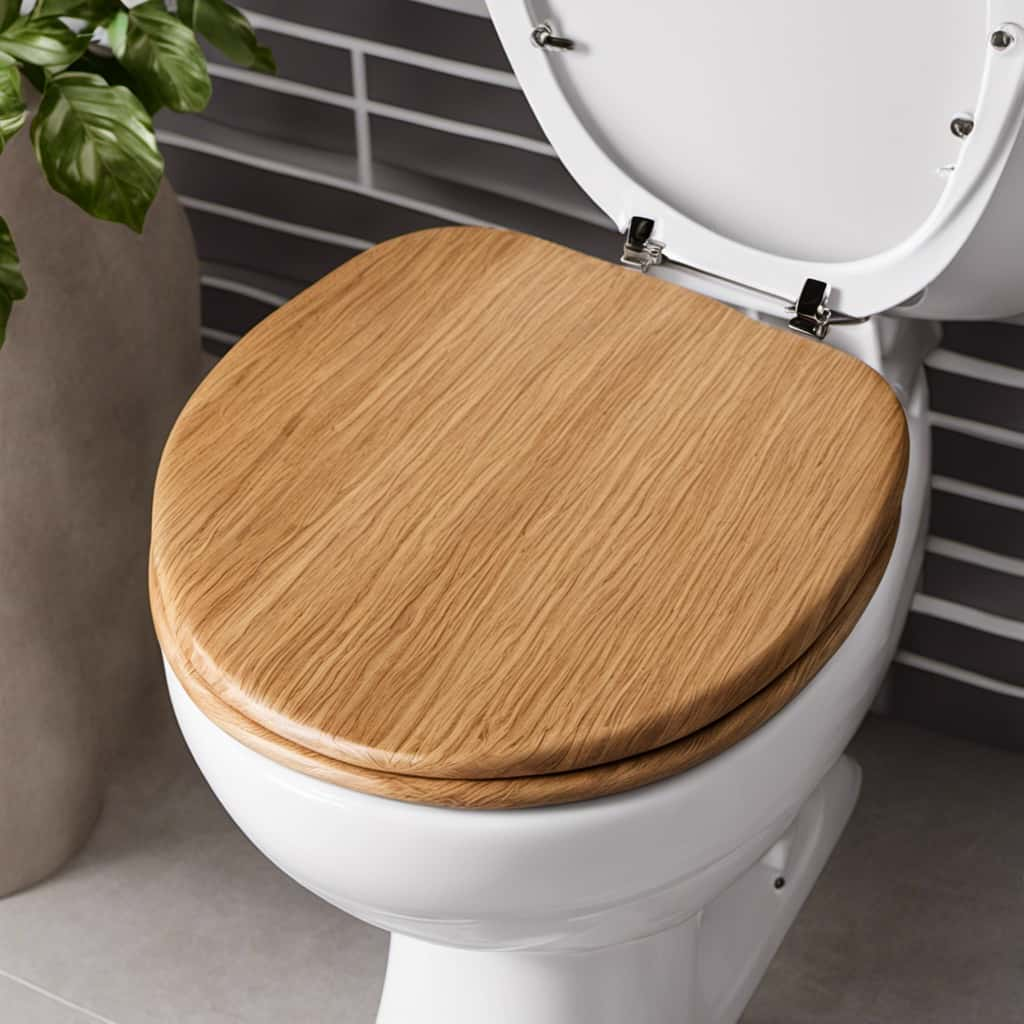
Buildup of Sediment or Debris
Another potential cause for a toilet flapper closing too soon is the buildup of sediment or debris. When sediment or debris accumulates in the toilet bowl or cistern, it can interfere with the proper functioning of the flapper.
Here are some key points to consider:
- Clogged pipes: Sediment or debris can accumulate in the pipes leading to the toilet, causing blockages and restricting water flow. This can lead to increased pressure on the flapper, causing it to close prematurely.
- Mineral deposits: Over time, minerals from hard water can build up on the flapper and other internal components of the toilet. These deposits can affect the flapper’s flexibility and prevent it from closing fully.
- Regular cleaning: To prevent sediment or debris buildup, it’s important to regularly clean the toilet bowl and cistern, including the flapper.
- Water quality: Using water softeners or filters can help reduce the formation of mineral deposits and prevent clogged pipes.
- Professional help: If the buildup is severe or persistent, it may be necessary to seek the assistance of a professional plumber to clean the pipes and remove any stubborn mineral deposits.
Frequently Asked Questions
Can a Toilet Flapper Close Too Soon if the Flapper Chain Is Too Long?
Yes, a toilet flapper can close too soon if the flapper chain is too long. The length of the flapper chain affects the timing of the closing mechanism, which can be impacted by the water level.
How Can Water Pressure Issues Affect the Closing Time of a Toilet Flapper?
Water pressure can affect the closing time of a toilet flapper. If the pressure is too high, it can force the flapper to close prematurely. Additionally, the length of the flapper chain can also impact the closing time.

What Are the Signs of a Malfunctioning Flapper Valve Causing It to Close Too Soon?
When a toilet flapper closes too soon, it can lead to issues like constant running water or incomplete flushes. Signs of a malfunctioning flapper valve include water leaking into the bowl or difficulties with flushing. Regular flapper maintenance or replacement can help resolve these problems.
What Are Some Common Mistakes Made During Flapper Installation That Can Lead to Premature Closing?
When installing a flapper, common mistakes can cause premature closing. These include improper alignment, incorrect chain length, or a loose flapper. Adjusting the flapper chain correctly is crucial for proper functioning.
How Does the Buildup of Sediment or Debris Impact the Closing Mechanism of a Toilet Flapper?
The effect of sediment accumulation on the closing mechanism of a toilet flapper is like a clogged artery. It hinders proper closure, causing the flapper to close too soon. Regular flapper maintenance is crucial to prevent this issue.
Conclusion
In conclusion, when a toilet flapper closes too soon, it can be caused by various factors. These include an incorrect flapper chain length, water pressure issues, a malfunctioning flapper valve, improper flapper installation, or a buildup of sediment or debris.

Identifying and addressing the specific cause can help ensure a properly functioning toilet system. So, next time your flapper acts up, don’t panic – just follow our simple troubleshooting steps and soon your toilet will be flushing like a well-oiled machine.

